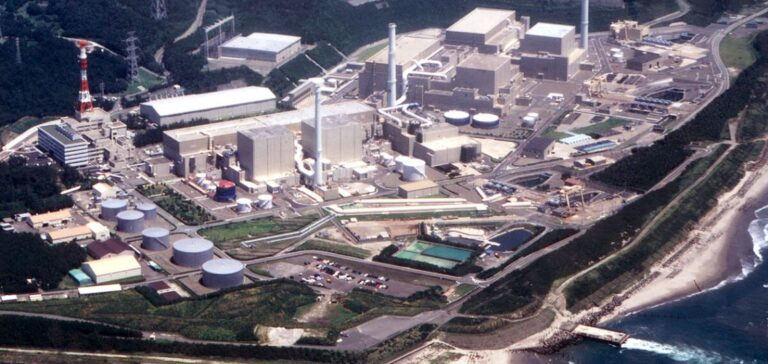Chubu Electric Power has announced it has begun dismantling its number two reactor at the Hamaoka plant, located in Shizuoka Prefecture. This project marks a first in the Japanese archipelago, being the first reactor dismantling operation at a nuclear plant in the country. In 2008, the company decided to dismantle two reactors at this facility to avoid costly upgrades to comply with seismic regulations. The dismantling process began with the removal of the upper lid from reactor number two, with a similar procedure planned for another reactor. The entire operation is expected to last until 2042, a necessary period to carry out the dismantling, a long and delicate process.
Nuclear energy at the heart of Japan’s energy strategy
The dismantling of the Hamaoka plant is part of a broader trend, that of the gradual return of nuclear energy in Japan. The country decided to shut down its 54 nuclear reactors after the Fukushima disaster in 2011. However, as part of its climate commitments, Japan now aims to reintroduce nuclear energy to achieve carbon neutrality by 2050. To date, nuclear energy accounts for less than 10% of the country’s electricity production. Nevertheless, Japanese authorities aim for a share of 20 to 22% by 2030, with the goal of diversifying energy sources to meet energy and climate challenges.
Chubu Electric’s actions in this context
Chubu Electric Power, the operator of the Hamaoka plant, plays a key role in the reintroduction of nuclear energy. In addition to bringing existing reactors back online, the company plans to extend their lifespan and supports projects for new nuclear plants. The dismantling of the Hamaoka plant is part of a series of initiatives in Chubu Electric’s strategy to modernize the country’s nuclear infrastructure. In total, 26 reactors, including those at Hamaoka and Fukushima, are currently undergoing dismantling, according to data from Japan’s Nuclear Regulatory Authority.
A complex process and technical challenges
Dismantling nuclear reactors remains a complex and costly process. Globally, around 25 reactors have been fully dismantled, and Japan is drawing on best international practices to ensure safety and compliance with the strictest standards. Japanese authorities impose rigorous regulations to ensure the safety of dismantling operations. This process involves not only managing radioactive waste but also decontaminating the facilities, which presents a significant challenge for the companies involved.





















